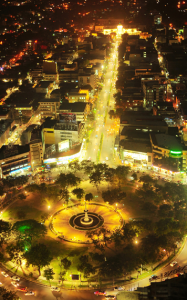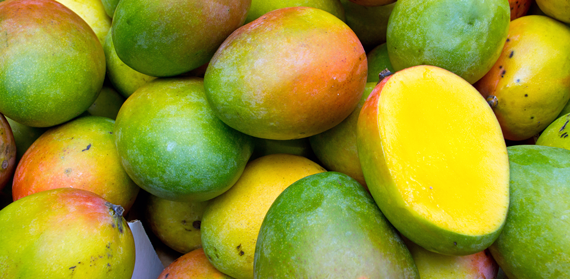Image: Shutterstock
The Philippines-UK collaborative Partnership-System for Environmental and Efficient Drying (PULP-SEED) is a British Council Newton Fund Institutional Link between Coventry University (CU), UK and the University of San Carlos (USC), Philippines. As part of this project, CU’s Cogent Labs, in collaboration with the USC, have developed the Philippines’ first wirelessly instrumented factory. This wireless system aims to improve the efficiency and capacity of a mango by-product processing factory.
The institutional link focuses on three areas; technological advances in factory monitoring, developmental activities at USC for staff research skills training and scoping industry-academia links at USC in Cebu City. The aim of the project area: “technological advances in factory monitoring systems” is to model and then optimise, a solar drying facility, which processes mango by-products (kernel, peel, and seed) into useful products, using novel technology developed at USC.
A full end-to-end Wireless Sensor Network (WSN) environmental monitoring system has been develope d and deployed, targeted at monitoring temperature, relative humidity, air flow and radiant temperatures of data from the drying environments (solar dryer and tunnel dryer).
d and deployed, targeted at monitoring temperature, relative humidity, air flow and radiant temperatures of data from the drying environments (solar dryer and tunnel dryer).
So what’s the significance of this?
This WSN deployment is the first step to producing a fully automated system that will make use of machine learning techniques to control the greenhouse environment, improving the capacity of mango by-products that the factory can process. With the rise of green technology, this project is timely since the factory converts 100% of material which otherwise would be waste to useful products, such as, mago flour and animal feed.
With the increased viability of mango waste processing, through the use of the wireless system, such that it can be scaled up to process all or most of the available mango waste currently being produced (current processing only takes waste from 1 of 36 plants in the region), this will lead to job creation and increasing social wealth in disadvantaged communities in the local region.
Also, the University of San Carlos will build a stronger research and skill base in wireless sensing technology. Coventry University will also provide USC with an annual summer school on wireless sensing and the Internet of Things, aimed at masters, PhD students, and staff members.
The hope too is that this project will inspire other Filipino industries to make greater use of their academic institutions as a source of technological advancement.
This work is being delivered as part of a Newton Fund Institutional Links project between Coventry University and the University of San Carlos. The Newton Fund is part of the UK’s official development assistance programme. The fund is £75 million each year from 2014 for five years. Through the Newton Fund, the UK will use its strength in research and innovation to promote economic development and social welfare of partner countries. By working together on research and innovation projects, the UK will build strong and sustainable relationships with partner countries. This will support the continued excellence of UK research and innovation to unlock opportunities for wider collaboration and trade.




Comments are disabled